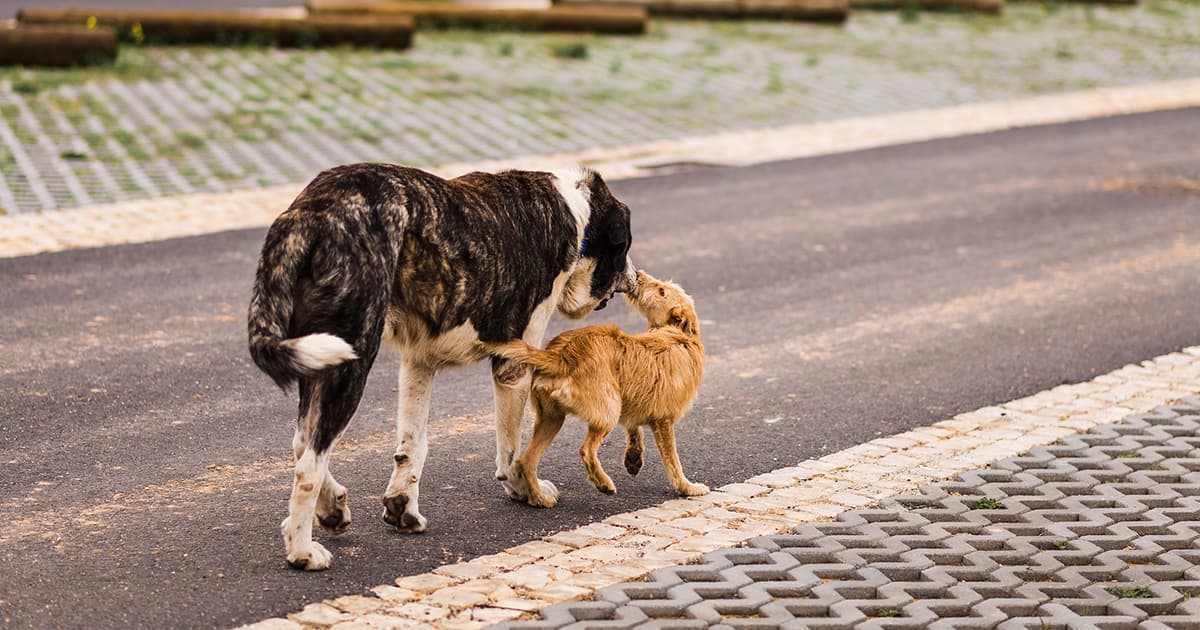How Does My Car Insurance Cover Hitting a Pet?

What happens if a cat or dog darts out in front of your car and the worst happens – you hit someone’s pet? Your liability coverage that’s part of your car insurance may cover this type of accident.
Keep in mind that, similar to other insurance claims, you may need to pay a deductible before your coverage kicks in when you’ve hit a pet with your vehicle.
Liability coverage
Liability coverage is a fundamental part of your auto insurance. It typically includes two main types:
- Bodily injury liability: This covers the medical expenses and other related costs for injuries to other individuals involved in an accident you caused.
- Property damage liability: This part of your coverage pays for damage to someone else's property, such as their vehicle or personal belongings, in an accident where you are at fault.
When it comes to hitting a pet, property damage liability is usually the relevant part of your coverage.
Comprehensive coverage
Comprehensive coverage, often referred to as "other than collision" coverage, provides protection against damage to your car such as theft, vandalism, and hitting an animal, including pets.
Hitting a pet as property damage
When your vehicle hits a pet, it is typically considered a form of property damage. This means that the property damage liability portion of your car insurance can come into play.
Filing a claim
If you hit a pet while driving, you should follow these steps:
- Ensure safety: First and foremost, ensure the safety of yourself, your passengers, and other drivers on the road. Pull over to a safe location if necessary.
- Check on the pet: If it's safe to do so, check on the injured pet. If the pet has an owner nearby, provide your contact and insurance information.
- Contact authorities: Depending on the situation, you may need to contact local authorities or animal control to assist with the injured pet.
- Contact your insurance company: Notify your insurance company about the incident as soon as possible. They will guide you through the claims process.
Coverage limits
The amount of coverage for hitting a pet depends on your policy's property damage liability limit. Insurance policies typically have limits that are expressed as three numbers, such as 100/300/50. In this example:
l $100,000 is the maximum amount your insurance will pay for injuries per person.
l $300,000 is the maximum amount your insurance will pay for injuries per accident.
l $50,000 is the maximum amount your insurance will pay for property damage per accident.
So, if the property damage liability limit is $50,000 in your policy, your insurance company may cover the costs, up to that limit, associated with the injury or death of the pet and any damage to your vehicle caused by the accident.
Deductible
Keep in mind that, similar to other claims, you may need to pay a deductible before your insurance coverage kicks in. The deductible amount varies depending on your policy, so it's crucial to review your policy documents and contact your insurance company for details.
Exclusions and variations
While car insurance typically covers hitting a pet, there can be exceptions and exclusions. These may include:
- Uninsured motorist coverage: If the owner of the pet cannot be identified, you may need to rely on your uninsured motorist coverage to handle the costs.
- Intentional acts: If it's determined that you intentionally hit the pet, your insurance company may deny coverage.
- Animal negligence: If you were driving recklessly or negligently, knowing there were pets in the area, your coverage could be impacted.
What Is pet insurance?
Pet insurance is a policy designed to cover the medical expenses associated with your pet's health and well-being. It operates similarly to health insurance for humans, reimbursing you for various veterinary treatments, surgeries, and medications.
Coverage for pets
Pet insurance policies typically cover:
- Illnesses and injuries: This includes conditions like broken bones, cancer, infections, and more.
- Preventive care: Some policies offer coverage for routine check-ups, vaccinations, and preventive treatments.
- Emergency care: Coverage for accidents, poisonings, and other unexpected emergencies.
- Medications: Prescription medications prescribed by a veterinarian.
- Specialty care: Coverage for specialists and specialized treatments.
How pet insurance relates to car insurance
While pet insurance primarily focuses on your pet's medical expenses, it can indirectly relate to car insurance in the following ways:
- Pet injury coverage: Some car insurance providers offer optional pet injury coverage as an add-on. This coverage helps pay for your pet's medical expenses if they are injured in a car accident.
- Pet liability coverage: In the event that your pet causes an accident, damages property, or injures someone, pet liability coverage can provide protection.



